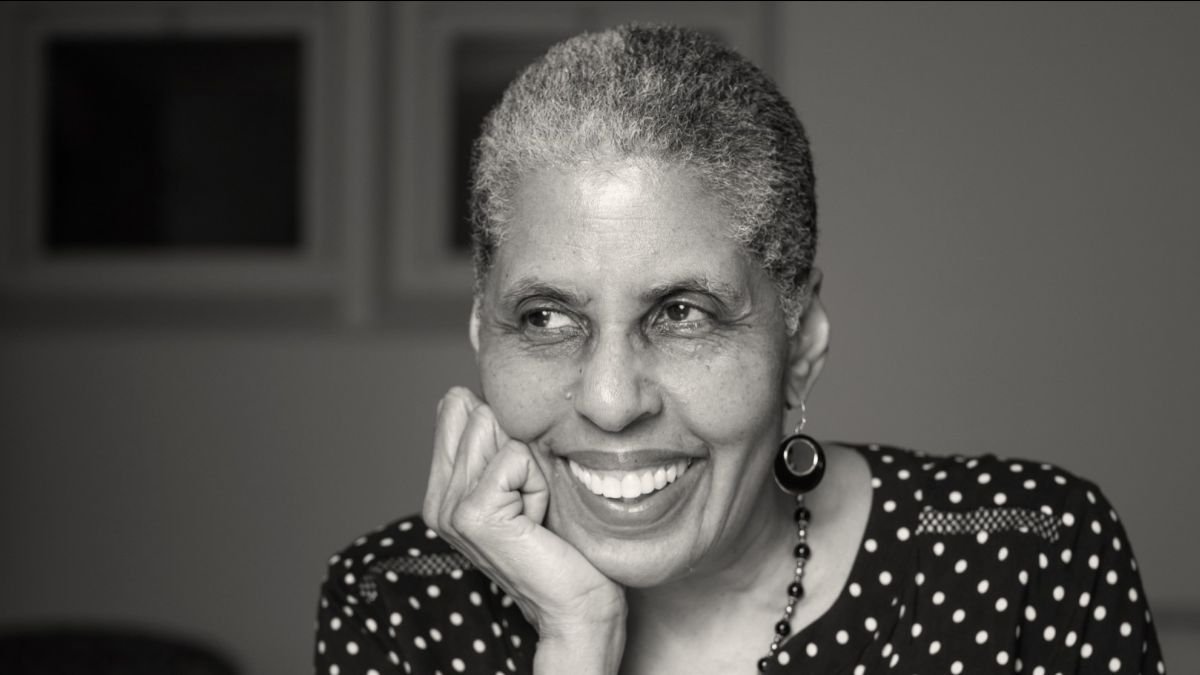Black Women's Expansive Visions
In honour of Women’s History Month, we are spotlighting the insights and work of women leaders whose ideas and activism inspire our community.
Below, we're newly lifting up the work of Founding Director of the Ida B. Wells Just Data Lab Ruha Benjamin, and award-winning singer-songwriter Thandiswa Mazwai, both of whom offered their liberatory visions to our community at Homecoming.
We're also resharing the work of scholar-activists and 2018 Fellows Sithandiwe “Stha” Yeni and Asanda Benya, founder of the Collective for Black Iranians Priscillia Kounkou Hoveyda, co-author of the Combahee River Statement Barbara Smith, hip-hop artist Akua Naru, and visual artists Lorryn Moore and M. Florine Démosthène.
From their multiple identities—as Black, woman, queer and straight, as scholars, artists and activists, as people formed in Haiti, Iran, South Africa and the United States—these inspiring women chart varied and intertwined paths to a world where Black people, and all people thrive.
In doing so, they join the tradition of Black women leaders who, in living and working fully in all of their particularity, open us to expansive possibilities for freedom. As Toni Morrison said, “My world did not shrink because I was a Black female writer, it just got bigger.”
We hope that you too find expansive possibilities as you encounter these leaders below.
The Big Impact of Small Actions
Drawing on Viral Justice: How We Grow the World We Want, her latest book and winner of The Stowe Prize, Ruha Benjamin delivered a stirring keynote at Homecoming.
In the book, whose Johannesburg launch AFRE hosted in partnership with University of Johannesburg's Centre for the Study of Race, Gender and Class, Ruha reminds readers of the transformative potential of the small-scale and the everyday. As she says in her keynote, "Small things—seemingly minor actions, decisions and habits—can have exponential effects [on our world]."
The Soulful Sound of Thandiswa Mazwai
"Transportive!" "A spiritual experience." Writers have used these words to describe the performances of award-winning artist Thandiswa Mazwai. Our community too can attest to the rapture of a Thandiswa Mazwai performance, having seen a soulful set at our Homecoming Gala.
Hailed as this generation’s Miriam Makeba, Thandiswa's political awareness was first formed in a childhood replete with political conversations and writings of her journalist parents. "My music is about memory, and straddling between oppression and freedom," she says.
New to her catalogue? Start with this collection of her music.
Solidarity for Shared Struggle
During their fellowship year, Senior Fellows Sithandiwe "Stha" Yeni'18 and Asanda Benya'18 created Feminist Schools to connect activists who live and work in and near mines in Marikana, North West, and white-owned farms in uMgungundlovu, KwaZulu-Natal.
In an interview with us, Stha places these mines and farms in historical context, clarifying the structures of economic exclusion that continue to shape life for their residents and workers, especially Black women. She also details the myriad infrastructural and social barriers that have long kept changemakers working in both contexts apart, despite their similar struggles.
"I am inspired by Black women who are on the margins, yet they carry on fighting and will not stop," she says. Read more.
What is the African in African-American
Well-known for her discerning, prophetic lyrics and classic jazz-hop sound, hip-hop artist Akua Naru illuminates hip-hop's liberatory power in the most popular episode of our podcast, Race Beyond Borders to date. Looking back on her many travels as an artist, she reflects on the intertwined character of the Black diaspora.
Listen here.
In Iran, "Blackness is a Surprise"
In Season 2, Episode 4 of Race Beyond Borders, Priscillia Kounkou Hoveyda, founder of the Collective for Black Iranians, guides us through the emotional terrain of Iran's little-known Black experience. She uncovers the beauty of her community as well as the erasure of Black Iranians from the national consciousness.
Listen here.
Don't miss Season 3 of Race Beyond Borders, which explores race beyond the border of time and launches next month. Subscribe to our mailing list or Follow Race Beyond Borders on Twitter, Instagram and Facebook.
Identity Politics: Returning to the Source
In 1977, Barbara Smith, her twin Beverly, and their friend Demita Frazier co-authored the groundbreaking Combahee River Collective Statement. In it, they named identity politics as politics that engage the multiple oppressions stemming from racial, sexual, gender, and class identities. "We believe that the most profound and potentially most radical politics come directly out of our own identity," they wrote.
In recent years, the term "identity politics" has been used and misused for various political purposes, and at times, it has been deployed to discredit the intellectual contributions of Black people, and Black women in particular.
How lucky we are, then, to hear Barbara Smith, now 76 years old, clarify the concept in conversation with writer Danielle Bowler. In Moya, our literary magazine, Smith and Bowler invite us into an intergenerational and transnational dialogue on race, sexuality, gender, and class in the South Africa, the U.S. and beyond. Read more.
Entrance to the Garden
In Entrance to the Garden, published in Moya, artist M. Florine Démosthène pays homage to Black womanhood. Using a mixture of mylar, ink, pigment, and glitter, she creates depictions of voluptuous bodies that appear weightless-floating, as if transcending some higher plane.
Click here for more.
Supper
Also in Moya, multidisciplinary artist Lorryn Moore recasts the Leonardo Da Vinci classic The Last Supper, provocatively placing Black women in the frame. In Supper, Moore seeks to represent community and gratitude while surfacing complicated relationships.
Click here for more.
This list was first published to our mailing list. Subscribe to stay in touch with our community.









